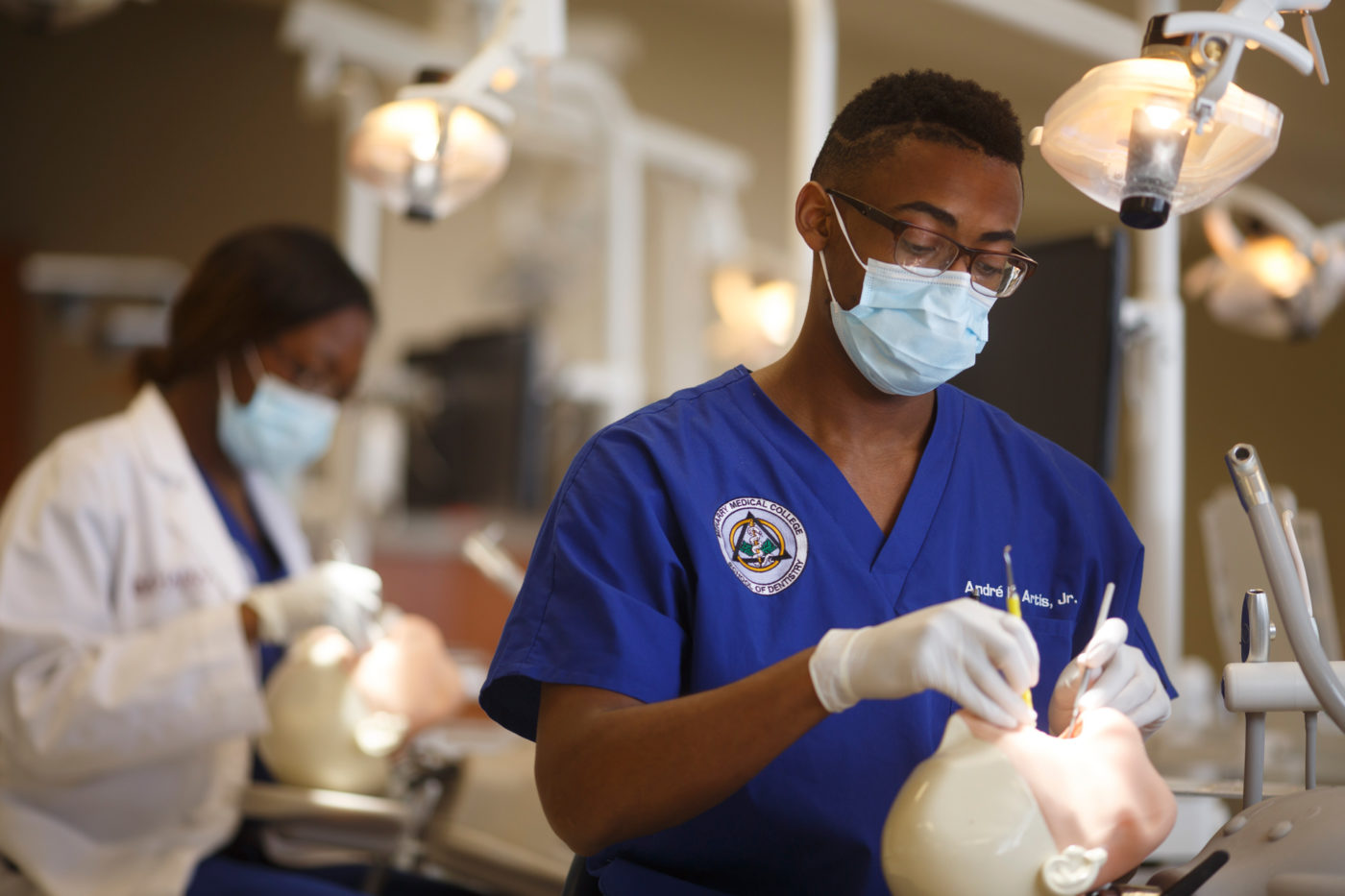Dentophobia, or the fear of dentists, prevents many people from seeking essential dental care. This common phobia can originate from various sources, such as past traumatic experiences, fear of pain, or the sounds and smells associated with dental offices. Understanding the root causes of dentophobia can help individuals take the first step towards overcoming it.
Strategies to manage and reduce this fear are multifaceted, ranging from psychological techniques to practical steps one can take before and during appointments. Patients can explore methods like cognitive-behavioral therapy, relaxation techniques, or gradually exposing themselves to dental environments. By adopting these strategies, individuals might find dental visits more manageable and less intimidating, ensuring better oral health.
For those struggling, communicating fears to dental professionals can create a more supportive atmosphere. Many dentists now offer gentle and patient-centered approaches, aiming to make the experience comfortable for anxious patients. Seeking out dentists who prioritize patient comfort can significantly ease the journey towards overcoming dentophobia.
Understanding Dentophobia
Dentophobia, the fear of dental visits, affects many individuals. Key aspects include its definition, prevalence, and specific psychological triggers contributing to this common anxiety.
Definition and Prevalence
Dentophobia is an intense fear related to dental appointments. It typically stems from fears of pain, dental instruments, or previous traumatic experiences. This phobia affects people across all age groups and can lead to avoidance of necessary dental care, impacting oral health.
In the United States, studies indicate that approximately 9-15% of individuals avoid visiting the dentist due to anxiety. While mild anxiety is common, dentophobia involves more severe apprehension that can interfere with daily life. Recognizing its prevalence helps in understanding its potential impact on society and the importance of addressing it effectively.
Psychological Triggers
Several factors contribute to dentophobia. Past traumatic dental experiences, often during childhood, can leave lasting impressions. Negative representations of dental visits in media also play a role by amplifying fears.
Fear of pain is a significant trigger, as many associate dental procedures with discomfort. The sound of dental tools and the sensation of being in the dental chair can exacerbate this fear. Loss of control during procedures intensifies anxiety for many, further discouraging regular dental visits.
Identifying these triggers is crucial for developing effective strategies to manage and reduce this fear. Approaches often include therapy, sedation dentistry, and building a positive relationship with dental professionals.
Causes of Dentophobia
Dentophobia often stems from negative past experiences, the anticipation of discomfort, and sounds associated with dental treatments. Understanding these factors can help in addressing and mitigating the fear of dental visits.
Past Dental Traumas
Past experiences with dental procedures can significantly influence present fear levels. For many individuals, painful or shocking incidents during childhood dental visits create lasting impressions. Memories of being in an unfamiliar, clinical environment where discomfort was experienced can lead to a generalized dread of future dental encounters.
These past traumas may result in a continuous cycle of avoidance. Persons who faced particularly distressing treatments often hesitate to return for fear of a repeated experience. This avoidance may inadvertently lead to poor oral health, which can exacerbate the fear, given the potential for more invasive procedures when treatment is eventually needed. Addressing these fears often requires empathetic dental care and sometimes therapeutic interventions to help dismantle the psychological barriers originating from these past events.
Fear of Pain
The anticipation of pain remains a significant contributing factor to dentophobia. Many assume that all dental procedures are inherently painful, despite advancements in pain management. This perception may stem from stories shared by others or exaggerated portrayals in media that heighten anxiety before appointments.
Pain fears can be particularly intense for those with low pain thresholds or those who have past painful medical experiences. For individuals with sensitive gag reflexes or a heightened sense of discomfort, even minor dental procedures may induce substantial anxiety. Acknowledging these fears and fostering a meaningful dialogue between patient and dentist about pain management techniques—like local anesthetics or sedation—can greatly alleviate concerns and improve the overall experience.
Anxiety from Dental Equipment Sounds
The various noises in a dental clinic can act as significant anxiety triggers. The sound of drills and suction devices are often perceived as intimidating, primarily when linked with unpleasant past experiences. This auditory association can cause people to tense up and experience heightened stress levels even before the treatment begins.
Efforts to mitigate this fear may include noise-canceling headphones or playing calming music to block the intimidating sounds. By diminishing the auditory signals that trigger fear responses, patients may find it easier to maintain a sense of calm during their visit. Providing a reassuring environment can make every visit feel more controlled and less anxiety-inducing.
Consequences of Avoiding the Dentist
Avoiding the dentist can have significant impacts on oral and overall health, potentially leading to more severe complications. It is crucial to consider the negative outcomes that may arise from neglecting regular dental check-ups.
Oral Health Decline
Regular dental visits play a pivotal role in maintaining oral health. Without routine cleanings and examinations, plaque and tartar can accumulate, increasing the risk of cavities and gum disease.
Gum disease, if unchecked, can advance to periodontitis, leading to potential tooth loss. Bad breath and discolored teeth are additional possible side effects of neglecting routine care. Professional cleanings help prevent these issues by removing buildup that regular brushing cannot eliminate.
Early detection of oral health issues ensures they are addressed before escalating. Dentists can identify signs of oral cancer or other significant conditions during check-ups, providing timely treatments that can prevent severe complications. Skipping these visits eliminates this crucial protective measure.
Risk of Dental Emergencies
Avoidance can significantly elevate the risk of dental emergencies. Without professional monitoring, minor issues like a small cavity or chip can progress to serious problems, such as a tooth abscess. An abscess, if untreated, can lead to intense pain and require invasive treatment like a root canal.
Toothaches, broken teeth, and infections are potential emergencies that can arise. They often occur suddenly, requiring immediate attention and possibly more invasive procedures than preventive care.
Dental professionals can address issues before they necessitate emergency care, saving both time and money. Regular appointments are an investment in oral health, helping to circumvent the distress and costs associated with urgent treatments.
Strategies to Overcome Dentophobia
Addressing dentophobia involves a range of approaches. These include altering thought patterns, seeking assistance from professionals, and using techniques to relax and stay distracted during a visit to the dentist.
Behavioral Techniques
Cognitive-behavioral therapy (CBT) is a widely recognized method to address dental anxiety. It helps patients modify negative thoughts about dental procedures into more positive ones. Exposure therapy, where individuals gradually face their fear through controlled exposure to dental settings, is also effective. Minor steps, such as visiting the dentist without undergoing any procedures, can be encouraged.
Creating a reward system for successful visits serves as positive reinforcement. Self-help books or resources focused on overcoming anxiety might also offer valuable insights into personal triggers and coping strategies.
Professional Support Options
Professional support can significantly alleviate dentophobia. Dentists specially trained in handling anxious patients can make a big difference. They may dedicate more time to explaining procedures thoroughly, thus reducing uncertainty. Sedation dentistry offers another avenue, where mild sedatives help patients stay calm during treatments.
Psychologists or therapists specializing in phobias provide additional support through various therapeutic methods. In severe cases, medication prescribed by a mental health professional to reduce anxiety symptoms before appointments is a viable option. This multifaceted approach can help patients build trust in their dental care providers.
Relaxation and Distraction Methods
Relaxation techniques involve strategies such as deep breathing exercises, which lower stress levels. Guided imagery or visualization helps by transporting the patient’s mind to a calm and safe environment during dental procedures. Listening to music or podcasts with headphones can effectively distract the mind.
Progressive muscle relaxation, where muscles are tensed and gradually relaxed, offers another way to ease tension. Some patients benefit from using stress balls or other focus tools to keep their hands occupied, diverting attention away from anxiety-inducing stimuli. Access to these methods empowers individuals to manage their fear efficiently.
The Role of Dental Professionals
Dental professionals play an essential role in helping patients manage and overcome their fear of dental visits. By creating a supportive environment and employing specific techniques, dentists can address common anxieties and facilitate a more positive experience.
Creating a Comforting Environment
A comforting environment begins with the design of the dental office. Soft lighting, calming colors, and soothing music can significantly reduce anxiety levels. The use of friendly, professional staff who communicate with empathy can further ease a patient’s discomfort.
Providing clear explanations about procedures and potential treatments is vital. Transparency helps in alleviating fears and builds trust between the dentist and patient. For dental emergencies, immediate and calm communication is crucial to reassure the patient. Personalized approaches for each patient also make a significant difference in ensuring comfort.
Use of Sedation Dentistry
Sedation dentistry offers options to ease patient fears by minimizing awareness and discomfort. Dentists may use oral sedation, nitrous oxide, or intravenous sedation, depending on the patient’s needs and the procedure complexity. This can help those with severe anxiety or phobia remain calm during treatments.
Clear communication about sedation options and potential effects is essential for patient consent and comfort. It’s crucial for dental professionals to monitor the patient closely during any sedation to ensure safety. Sedation can also be valuable in effectively managing dental emergencies, helping patients cope without added stress.



